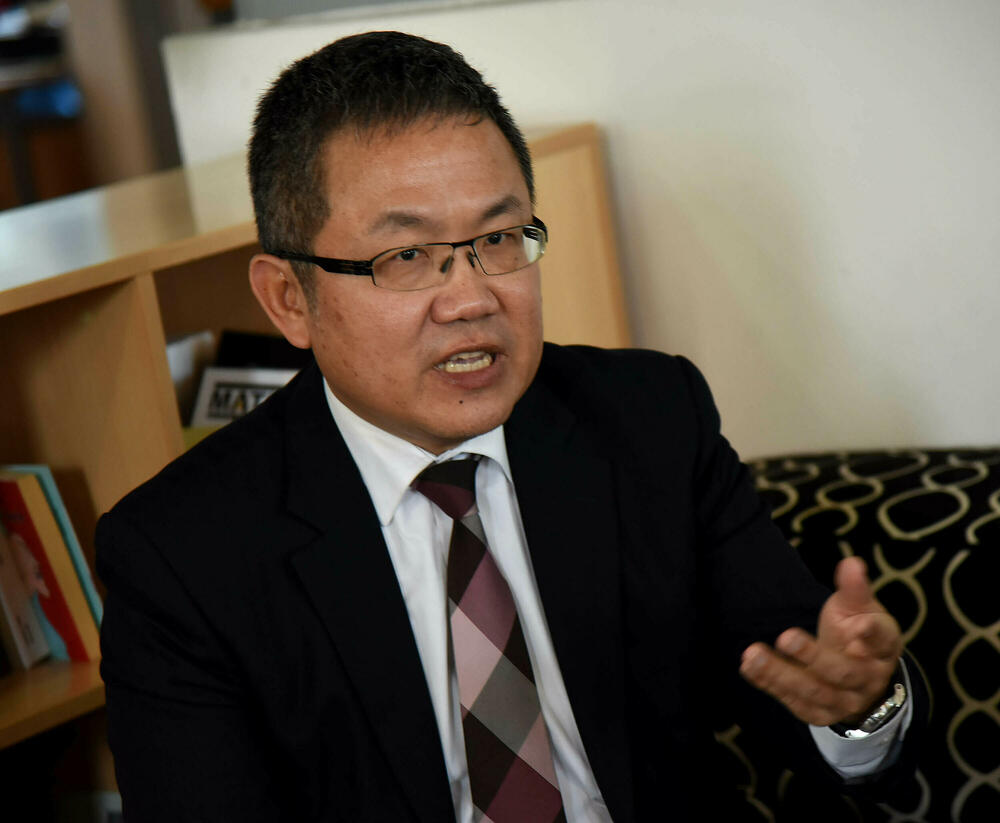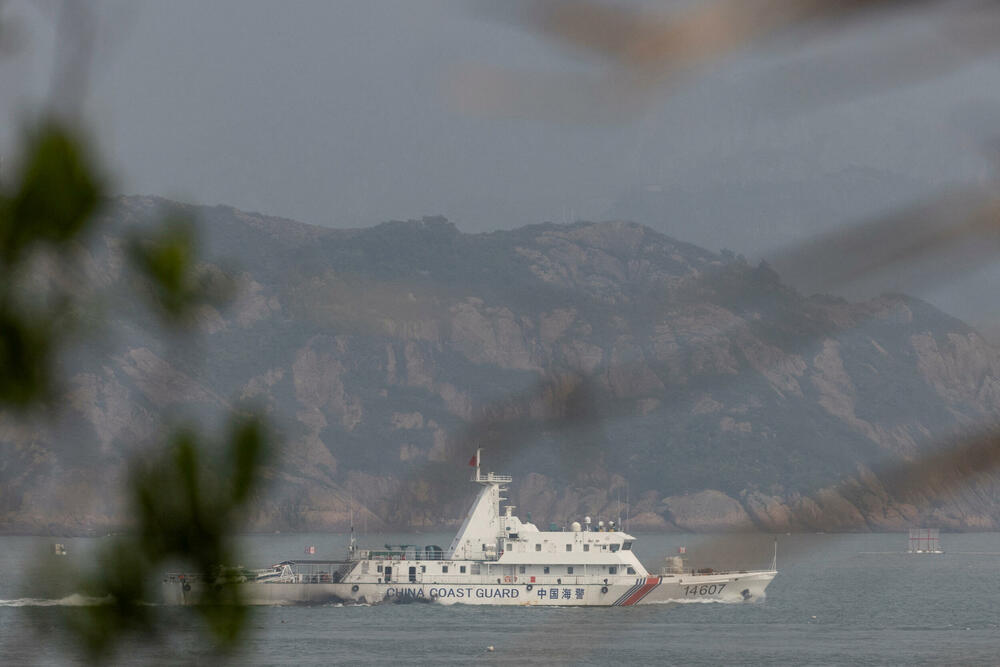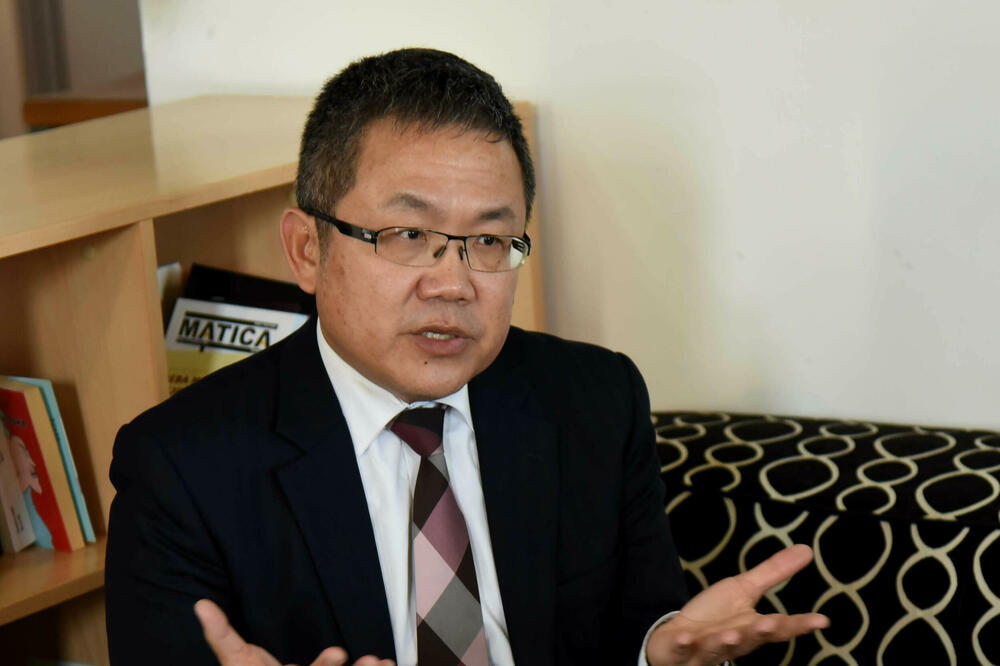The current administration of the outgoing president of Taiwan Cai-Ing-wen and the newly elected president Lai Ching-te clearly stated that "the Republic of China (Taiwan) is an independent and sovereign country", Shih Chung Liu, head of the Taipei Representation in Budapest, told "Vijesti". He pointed out that it is "the definition of the status quo of the current and future Taiwanese government", and that the international community, led by the US and its security partners, will not allow Beijing to change it by military means, and that in the event of an attack, China would have to " pay a high price”. The People's Republic of China "never ruled Taiwan" and "China and Taiwan do not belong to each other," Liu told "Vijesti".
At a time when tensions in the Taiwan Strait are at their highest level since 1996, the representative of Taipei in Hungary says that "the Taiwanese government is committed to preserving the status quo" of the strategically important strait and "opposes any unilateral attempt to change that status, especially through the use of military means." .

China considers Taiwan its territory, ignoring objections from the government in Taipei, and in recent years has intensified political and military pressure in the Taiwan Strait to assert those claims.
In January, Taiwan elected current Vice President Lai Ching-te as president, who will be inaugurated in May. Beijing calls Lai Ching-te a "dangerous separatist", and on the eve of the elections, he told the citizens of Taiwan to choose between "war and peace".
In a written response to the question of "News" whether he believes that the status quo of Taiwan is sustainable and whether he expects additional pressure from Beijing after Lai takes office in May, Liu points out that "preserving the status quo of the Taiwan Strait is also in the interest of most interested parties, including the US, Japan, Korea, Philippines, Australia, European countries, etc". "Therefore, all these countries called on China to refrain from using military force to change the current status quo of the Taiwan Strait," Liu said.
China, as reported by Reuters, has announced an increase in defense spending to 7,2 percent this year, which means an increase in the military budget that has more than doubled during the 11 years in power of President Xi Jinping. Some analysts believe that in this way China is showing that it wants to strengthen the army to the extent that it is ready to win a possible war.
The Chinese leader does not want Taiwan's democracy to affect the Chinese people in any way. I want to emphasize that with the advancement of Taiwan's democracy, the Taiwanese identity is becoming stronger, said Liu
Liu, however, in a conversation during a visit to the "Vijesti" editorial office, said that the Chinese government increases its military spending every year and pointed out that "this is how China expands its military power" and that "its target is not only Taiwan, but much wider." "We know the official data, but we don't know the secret figures. However, the reason for the constant increase in the military budget is not only focused on Taiwan, but is actually about China's ambition to increase its global military power in the Pacific, in the South China Sea and even in the North. Of course, this caused great concern in the international community. "Generally, by intensifying activities in the Taiwan Strait, China wants to send a message that it is all its territory, including Taiwan, which the Americans, Japanese, Koreans, Filipinos and even the Vietnamese will not accept because of the importance of the Taiwan Strait," said Liu.
Relations between the United States and China are currently at their lowest point since the establishment of diplomatic ties, and some analysts predict that a military conflict between China and the United States over the issue of Taiwan could break out.
Liu points out that "effective deterrence" is the key to maintaining peace and that in this sense the authorities in Taiwan are careful and try not to fall for "Beijing's provocations and bullying".
“Effective deterrence and successful communication between the US and China are the main elements for preventing conflicts. The American government has made it clear that it will not allow unilateral attempts to change the status quo of the Taiwan Strait, especially through military means," Liu said, adding that the relations between Taiwan and the US are at the best level and do not depend on which administration is in power. To the White House.
"The US no longer views China as a "strategic partner" but as a "strategic competitor" and even as a "strategic rival". Washington is also trying to prevent China from challenging its global leadership in technology. In other words, regardless of which party is in power, Washington's policy is to counter China's potential threat. There is strong bipartisan US support for Taiwan democracy and the preservation of peace and stability across the Taiwan Strait. Washington has also successfully secured Taiwanese investment in the US in the semiconductor sector. Taiwan Semiconductor Manufacturing Company (TSMC) presented new investments in Arizona in the USA, in Kumamoto in Japan and Dresden in Germany," said Liu.
As Reuters points out, China is a potentially important foreign policy issue in the US presidential campaign. Republicans argue that this Asian power is a growing threat to the national security of the United States, American corporate interests and the independence of Taiwan.
The administration of President Joe Biden has announced that it wants to "reduce the risk" and not "terminate" its relationship with China and work to ensure that the rivalry between the world's first and second economic power does not escalate into a conflict.
When asked by "Vijeta" how a potential defeat of Ukraine or a standstill in the war with Russia would affect Taiwan and whether he thinks it would encourage China and its leader Xi in their approach to Taiwan, Liu pointed out that Taipei supports Ukraine in defense against Russian invasion. "The government and people of Taiwan have donated significant funds and equipment to Ukraine. "Taiwan has offered humanitarian aid to the Ukrainian government and people," he said.
Liu believes that a potential Chinese military action on Taiwan, "one of the world's most successful democracies, a strategic player in the Indo-Pacific region and a key producer in the global semiconductor industry, would undermine not only regional stability but also disrupt the global chip production supply chain." "The international community, primarily led by the US and its Asian security allies, will not allow Beijing to make such a move. And China will have to pay a high price if it decides to launch such an attack," he pointed out.
According to him, "the collapse of Hong Kong's autonomy and the Russian invasion of Ukraine encouraged the Taiwanese people to defend their democracy and security". He pointed out that surveys have shown that the majority of the Taiwanese people support "maintaining the status quo as such" and that "almost 80 percent of the Taiwanese people identify themselves as Taiwanese, not as Chinese."

"The worst nightmare for Chinese leaders is for Taiwan to become an even bigger democracy, increasingly popular in the international community and increasingly strategically important to the US and Japan in the Western Pacific. Also, the Chinese leader does not want Taiwan's democracy to affect the Chinese people in any way. I want to point out that with the advancement of Taiwan's democracy, the Taiwanese identity is becoming stronger. However, China does not seem to understand Taiwan's identity and instead of taking an approach based more on mutual respect, especially under the rule of Xi Jinping, it is regressing in terms of its approach to Taiwan," said Liu during a visit to the newsroom of "Vijesti".
Beijing has officially adopted a harsher language towards Taiwan, as evidenced by the fact that Chinese Prime Minister Li Qiang, at the opening of the National People's Congress on March 5, omitted the term "peaceful", which had been mostly used until now, when speaking about unification, international media reported.
Liu believes that the term "peaceful unification" is actually a kind of "propaganda by Beijing to attract the people of Taiwan". "Let's remember that they are behind the so-called "one country, two systems" model of Hong Kong, as a kind of autonomy for Hong Kong residents, and now there is no kind of autonomy for Hong Kong," said Liu. "Of course we need to be ready and Taiwan is doing a lot in the field of self-defense and determination because we want to show the world that like the Ukrainians, who have been fighting against Russia for two years, Taiwan can defend itself for a while and then we can count on to some kind of foreign aid," said Liu.
Commenting on Beijing's efforts to expand its influence in the Balkans through investments, Liu said that such attempts "represent a threat and disruption of the global order". "Even regarding the so-called "Belt and Road" initiative, there have been fierce reactions in Europe, Africa, Central and South America. The most common criticisms include environmental degradation, debt accumulation, lack of transparency and the growth of corruption. More and more countries are withdrawing from the Initiative".
He added that the European Parliament "28. adopted the Common Foreign and Security Policy (CFSP) on February XNUMX and announced that the European Union condemns China's military provocations against Taiwan and opposes any unilateral move to change the status quo of the Taiwan Strait".
No meetings at the state level because "the Chinese are watching"
When it comes to Taiwan's relations with the Balkan countries, especially with Montenegro, Liu stated that there is room for improvement. “It takes two to tango. We will be happy to share our story of successful democracy and technological progress with Montenegro", he said and added that Taiwan has partnered with the EBRD to present smart traffic projects in Montenegro. “There are many opportunities for both countries to work on smart city projects. Every March, Taiwan organizes the International Smart City Summit. It would be an honor for us to invite some of the mayors from Montenegro to join the meetings".
He said that more and more Taiwanese companies are withdrawing from China and are looking for potential alternative markets in the world for investments and pointed out that Taiwan has invested in tourism business in Montenegro.
He pointed out that the Balkans is like "unexplored territory for most Taiwanese businessmen". "We don't have an office here, we don't have an office in any of the Balkan countries. Having that in mind, we have limited human resources. This is my first visit here and the primary goal is to familiarize myself with the situation”.
"So the first step is to bring the peoples of Taiwan and Montenegro closer together through educational, cultural and economic exchanges. Taiwan offers many scholarships to students around the world. Montenegro is also one of the tourist attractions for potential guests from Taiwan. These are areas of mutual interest," Liu said in an email, answering questions from the News about bilateral relations.
In an interview in the "Vijesti" editorial office, he said that, during his stay in Montenegro, he met with representatives of the civil sector, our media and the mayor of Kotor, with whom he discussed tourism cooperation. When asked why he did not meet with some of the state officials, he replied that he wanted to get a "clear impression of the local political scene, taking into account the events of the last few years. "However, I will definitely return if I have the opportunity and if the government wants to cooperate with Taiwan. Since the Chinese are watching everything, we don't want any public engagement with the officials because we don't want to put them in a difficult situation," he said.
Bonus video:




